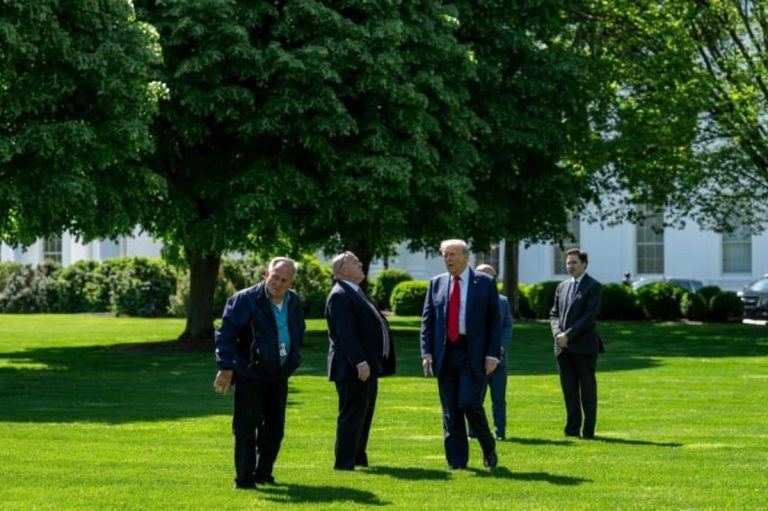🎧 Listen to This Article
A Legal Test for Executive Trade Power And a Warning Shot to Multinationals.
Twelve U.S. states have launched a direct legal challenge against the Trump administration, alleging that recent tariff hikes, justified under emergency powers, constitute an illegal tax on Americans and an overreach of executive authority.
But this is more than just a constitutional standoff. It signals mounting uncertainty in U.S. trade enforcement, revives questions about using the International Emergency Economic Powers Act (IEEPA), and adds a new layer of litigation risk for multinational businesses exposed to tariff-linked cost structures.
At stake: not only the future shape of U.S. trade policy under a second Trump presidency, but the compliance environment for global firms that import into or export from the United States.
Expanding Use of IEEPA Could Reshape Trade Taxation
The IEEPA was enacted in 1977 to give presidents authority during national emergencies, traditionally in terrorism financing, weapons trafficking, or sanctions. Until now, it had never been used to impose tariffs, despite decades of trade deficits and transnational crime.
This lawsuit, filed in the U.S. Court of International Trade, marks the first coordinated, multistate legal rebuke to that expansion. According to the source, the plaintiffs, including New York, Arizona, Colorado, Connecticut, Delaware, Illinois, Maine, Minnesota, Nevada, New Mexico, Oregon, and Vermont, argue that this unprecedented use of IEEPA has morphed economic policy into unilateral tax policy.
The concern is straightforward: if tariffs can be rebranded as emergency measures, any future administration could bypass Congress to enact sweeping trade penalties — with limited oversight, no legislative debate, and little recourse for business.
Litigation to Stretch Through 2025
Expect the court process to be long and politically volatile. The case challenges not only the legality of specific tariffs but also the broader authority of the executive branch to define and act on “emergencies” in the trade space.
Notably absent from the 12-state coalition, California filed its parallel lawsuit last week, a sign that legal opposition is diverse and mounting.
Multinationals operating in the U.S. should anticipate at least 6–12 months of procedural motioning, with potential preliminary injunctions issued mid-year. If the court pauses enforcement of reciprocal tariffs, it could significantly alter price and supply dynamics for U.S. importers.
Strategic Implications: What Executives Should Do Now
1. Audit Tariff Exposure by Legal Basis
Not all tariffs are created equal. Those linked to IEEPA are now legally vulnerable. Companies should map exposure to tariffs potentially subject to the injunction; especially in manufacturing, pharmaceuticals, and electronics sectors where cost pass-throughs are limited.
2. Model Contingency Scenarios
Prepare for volatility. If courts strike down IEEPA-based tariffs, it may restore lower-cost sourcing channels; but also trigger retaliatory measures or accelerated policy counterstrikes from the administration.
3. Engage Policy Teams on Administrative Procedure Act (APA) Risk
The lawsuit also cites APA violations as a sign that procedural deficiencies may be as critical as statutory authority. Legal and policy teams should track APA-related precedents, particularly in trade and environmental regulation cases, to anticipate judicial leanings.
4. Reassess Political Risk Insurance (PRI)
With trade becoming a de facto tax lever, PRI providers may adjust pricing models to reflect litigation uncertainty. CFOs and risk officers should review existing coverages and look for exclusions related to U.S.-initiated tariff schemes.
Underpriced Risk: Trade Policy as Shadow Taxation
This case underlines a broader trend: the weaponization of tax policy through non-tax instruments. Once a blunt economic tool, tariffs are now used to achieve regulatory, geopolitical, and electoral aims, often without apparent legislative authority.
For cross-border businesses, the message is clear: compliance is no longer just a matter of customs classification or HS codes. It now intersects with constitutional law, administrative process, and executive politics.
Looking Ahead: If the States Win, What Changes?
If the plaintiffs succeed in halting IEEPA-based tariffs, the implications could be sweeping:
- Rollback of reciprocal tariffs paused earlier this month, especially those targeting the EU and Mexico.
- A judicial curb on IEEPA powers could reverberate through sanctions regimes and digital trade restrictions.
- A legislative effort to redefine or limit what qualifies as a “national emergency” for economic purposes.
But if the administration prevails? Expect IEEPA to become a future core pillar of U.S. trade strategy and perhaps a model for other countries exploring bypassing their legislative gridlocks.
For further details, clarification, contributions, or any concerns regarding this article, please contact us at editorial@tax.news. We value your feedback and are committed to providing accurate and timely information. Please note that our privacy policy will handle all inquiries



